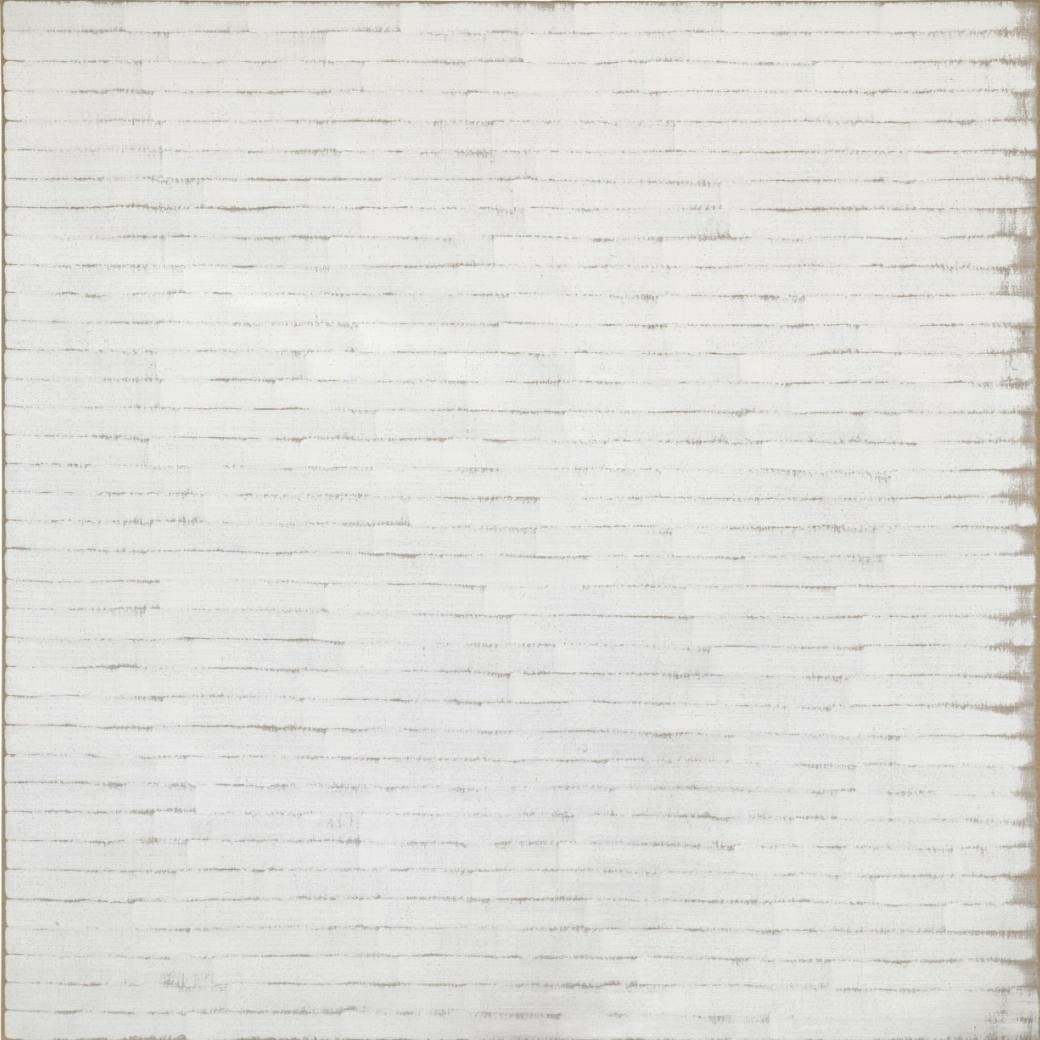Robert Ryman
Robert Ryman, #31, 1962
Robert Ryman (1930–2019) was an American painter whose minimalist, often monochromatic works transcended the confines of traditional painting. Throughout his six-decade career, Ryman explored the essential nature of painting itself—its materials, its surfaces, and its relationship to light and space. His canvases, predominantly in shades of white, were not merely colorless but vibrant with texture, layers, and an evocative use of the physical medium. For Ryman, every brushstroke and mark was a careful meditation on the act of painting, each gesture imbued with meaning, inviting the viewer into a deeply personal dialogue with the artwork.
Robert Ryman, Untitled, 1961
Robert Ryman, Bridge, 1980
Ryman’s most famous works, such as Bridge, Untitled, and The White Paintings series, are often deceptively simple in their appearance. Yet, upon closer inspection, they reveal complex variations in tone, surface quality, and form. These subtle contrasts encourage reflection on the passage of time, the space between light and shadow, and the tension between simplicity and complexity. His art demands an emotional and intellectual engagement that challenges perceptions of what a painting can be, moving viewers to see beyond the surface and experience a profound resonance with the work.
Ryman’s work is particularly noted for its ability to evoke an emotional response through its stark yet contemplative aesthetic. His minimalism creates an open space where each viewer’s personal interpretations come into play, allowing for a connection that feels intimate and universal at once. Whether in a museum or private collection, Ryman's works linger, drawing the viewer into a serene yet compelling contemplation of absence, presence, and the quiet power of art.
Born in Nashville, Tennessee, Ryman spent much of his life in New York City, where he was an influential figure in the development of minimalist art in the 1960s. He continued to live and work in the city for much of his life before retiring to a quieter existence in the Hudson Valley, where he passed away in 2019. His legacy endures, not only in his works that challenge our expectations of art but also in his profound ability to move the soul through simplicity.
Robert Ryman, Windsor, 1966



